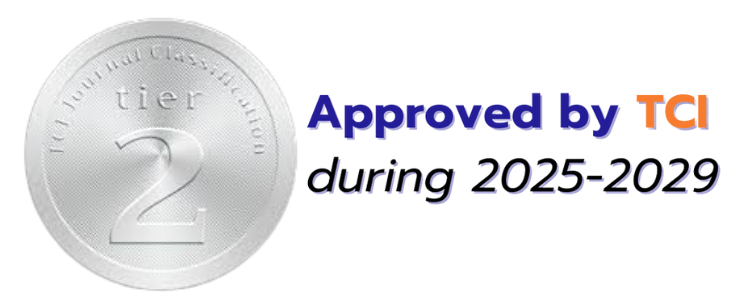Academic Management for Developing Innovator Competencies
Keywords:
Academic Management, Innovator CompetenciesAbstract
Creating or developing an innovator is known as the ability to create new business ideas by developing creative intelligence together with leveraging discovery skills. In Thailand and abroad, the concept of education management is to develop into an innovative school and a strategy to develop teacher performance for innovation for schools in the 21th century. Objectives consist of 1) To analyze academic administration in innovator competency development and 2) to study 5 characteristics of innovators, namely networking, experiments, creativity Thinking, leadership skills and observation skills. After analysis and synthesis of concepts, theories and related research by applying the conceptual framework of academic administration to create 4 innovators: learning management, curriculum development, Innovation development, media and learning resources and measuring and evaluating learning outcomes. to develop innovators' competencies. The academic administration, which is the operation that responds to education management, allows students to achieve the desired learning outcomes among the changes in the world. The purpose of this article is benefit to school administrators who need to rely on proactive to achieve academic management objectives and missions to develop innovative performance to enable students to achieve 5 aspects of innovator’s characteristics: networking, experiment, creativity thinking, leadership skills, and observation skills by using 4 innovative academic management concepts framework: Learning management, curriculum development, innovation development, media and learning resources, and learning measurement and evaluation. To provide academic management to improve the performance, innovation, innovation, to be a person who has applied new knowledge, ideas, methods, or things to improve for more quality learning management in accordance with the management of new education in the 21st century learning strategy.
Downloads
References
Amabile, T. M., Conti, R., Coon, H., Lazenby, J., & Herron, M. (1996). Assessing the work environment for creativity. Academy of Management Journal, 39(5), 1154–1184. https://doi.org/10.2307/256995
Office of the Basic Education Commission. (2008). Guidelines for learning management according to the Basic Education Core Curriculum, B.E. 2008. https://www.obec.go.th/
Office of National Economic and Social Development Council. (2009). Let's practice the 5I skills to be a 2nd century innovator. https://nia.or.th/5i
Office of Educational Management Innovation Development. (2023). Guidelines for developing innovative schools to become innovators of the Office of the Basic Education Commission. https://anyflip.com/ixbqr/vhrh/basic
Chamchoi, S. (2022). School administration to create young innovators. Bangkok: Chulalongkorn University Press.
Dyer, J. H., Gregersen, H. G. & Chirstensen, C. M. (2009). The innovator's DNA. Harvard Business Review, 87(12), 60-67.
McKenna, B. W. and Bergie, L. (2016). Creating the Next Generation of Innovators. Publications & Research. https://digitalcommons.imsa.edu/stratinnov_pr/6
Herkema, S. (2003). A Complex Adaptive Perspective on Learning within Innovation Projects. The Learning Organization, 10(6), 340-346.
OECD. (2011). Skills for innovation and research. In Skills for Innovation and Research. OECD Publishing. https://doi.org/10.1787/9789264097490-en
Klaichun P. and Trirat, P. (2021). Innovatorship enhancement model for undergraduate programs of private universities in Thailand. Journal of Social Science and Buddhistic Anthropology ,6(8), 236-252.
Pumpo, A. (2021). School Innovation: A New Mindset for Teachers and Students. https://www.teacheracademy.eu/course/educating-for-innovation/
Roberts, J. L. (2010). Talent Development in STEM Disciplines: Sparking Innovators. National Consortium for Specialized Secondary Schools of Mathematics. Science & Technology journal, 7-9.
Rojkangsadan, T. (2018). The most important skill of an innovator. https://thongchairoj.medium.com/คุณสมบัติโดดเด่นที่สุดของนวัตกร-3f405637b83a
Songkitpisan, I. (2020). Academic administrative strategies for secondary school based on entrepreneurial leadership competency concept [Doctor of Education degree program
Education Administration Chulalongkorn University].
Sudeendra Thirtha Koushik, K. S. (2016). Innovator Skills – A Comparative Analysis A 3-Dimensional Innovation model for business impact. International journal of research and scientific innovation, 4(1), 20-26.
Tang Uthairuang, T. (n.d.). Graduate School of Academic Administration. Accessed from https://www.slideshare.net/twatchait/ss-38314050
Thepsena, S. (2021). Secondary school acadamoc management strategies base on the concept of innovative entrepreneurship [Doctor of Philosophy in Educational Management, Chulalongkorn University].
Theodotou, M. (2022). Innovation Blueprint: Building An Innovation Competency Model. https://elearningindustry.com/innovation-blueprint-building-an-innovation-competency-model
Tornatzky, L.G., and Klein, K. J. (1 9 8 2 ) . Innovation Characteristics and Innovation AdoptionImplementation: A Meta-analysis of Findings. IEEE Transactions on EngineeringManagement, 29(1), 28-45.
Yuyuen, P., Tumiota, A and Sriyothin, S., (2017). Factors that influence the innovator. The 4th National Conference on Public Affairs Management. Public Affairs Management Under Thailand 4.0.
Yolsuriyan, N. (2020). The effect of project-base learning management with STEM Education concepts to promote innovator and creative work of grade 5 student [Master of Education (Curriculum ans Instruction), Silpakorn University]
Willer, D. (1986). Scientific Sociology : Theory and Method. Englewood Clift, NJ :Prentice Hall Inc.
Wongtienlai, K. (2022). Academic Management Strategies of Nursing College under the jurisdiction of Ministry of Defence Based on the Concept of Innovator Competencies of Nursing students [Doctor of Philosophy in Educational Management, Chulalongkorn University].
Downloads
Published
Issue
Section
License
Copyright (c) 2024 Journal of Education and Human Development Sciences

This work is licensed under a Creative Commons Attribution-NonCommercial-NoDerivatives 4.0 International License.







